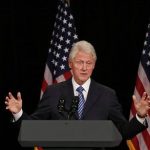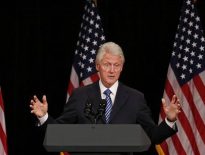(Reuters) – Republican Wisconsin Governor Scott Walker’s recall victory raised numerous warning flags for President Barack Obama and his fellow Democrats, who badly flunked the first big political test of the 2012 campaign.

Walker’s surprisingly easy win over Democrat Tom Barrett on Tuesday was fueled by a big turnout from a motivated Republican base of voters, and by heavy spending by out-of-state conservatives who flooded Wisconsin with campaign cash.
Both trends raised difficult questions for Obama’s re-election campaign, which has struggled to match the enthusiasm of his 2008 White House run and compete financially with the huge sums of money being raised by conservative outside groups ahead of the November 6 election.
At the least, the result moved Wisconsin from a relatively safe state for Obama, who won it by 14 percentage points in 2008, to a competitive tussle with Republican rival Mitt Romney.
“You could have a reasonable debate about whether Wisconsin is a toss-up or maybe slightly leaning to Obama,” said Charles Franklin, a pollster at the Marquette University School of Law in Wisconsin. “But you can’t debate that it will be competitive, and it really will depend on how the economic numbers play out over the next few months.”
In Walker’s 7 percentage point victory over Barrett after a 15-month battle over his efforts to slash spending and rein in public-sector unions, Republicans saw an endorsement of his bulldozing approach to limiting government and a good omen for November.
“The voters in Wisconsin preferred conservative solutions to economic problems, and that’s going to be one of the main points of contention in the November election,” said Mark Graul, a Wisconsin-based Republican strategist.
Democrats preferred to focus on the influence of out-of-state conservative money, which poured tens of millions of dollars into Wisconsin and helped Walker outspend Barrett, who he also beat in 2010, by more than 7-to-1.
“What you had was an incumbent governor, in a repeat election that he had won once in which he outspent his challenger by a magnitude of seven or eight to one with an enormous amount of outside corporate money and huge donations,” White House spokesman Jay Carney told reporters.
“I certainly wouldn’t read much into yesterday’s result beyond its effect on who’s occupying the governor’s seat today in Wisconsin,” Carney said.
CONSERVATIVE BILLIONAIRES
Many of the biggest names among conservative donors, from the billionaire brothers David and Charles Koch to casino magnate Sheldon Adelson, made donations to help Walker.
Those conservative interests are certain to be back in the fall to battle Obama’s re-election. Some Democrats said they hoped the result in Wisconsin would jump-start efforts to bolster donations to Democratic-allied “Super PACs,” outside political groups that have badly trailed their Republican counterparts.
It also could galvanize Democratic organizing efforts that have lagged behind the Obama campaign’s 2008 juggernaut.
“A lot of Democrats hadn’t realized until now how hard this was going to be,” said Washington-based Democratic strategist Karen Finney. “My hope is that this serves as a wake-up call for the party. I hope it really shakes people up.”
Exit polls offered a mixed message on Obama’s prospects in Wisconsin in November. The same voters who backed Republican Walker preferred Obama over Romney by 7 percentage points, the exit polls showed, and thought Obama would be better than Romney on improving the economy.
That was similar to public polls taken before the recall, which had given both Walker and Obama the lead in Wisconsin.
The result was muddled by voter doubts about the validity of a recall against Walker, analysts said. The exit polls showed 18 percent of Obama supporters backed Walker.
“There are actually about 15 to 20 percent of the voters in Wisconsin who make their choices on factors other than parties or ideological commitment,” Franklin said. “How they feel about the economy is going to be the most important factor in November.”
The result could deepen a sense among some state Democrats that the national Democratic party and Obama could have done more for Barrett. Obama stayed out of the recall race, limiting his involvement to a statement of support on Twitter on Monday night.
Debbie Wasserman Schultz, the chairwoman of the Democratic National Committee, had described the Wisconsin recall as a “dry run” for the party’s grass-roots campaign efforts – a claim that Republican were quick to mock on Wednesday.
“After yesterday’s victory, Republicans have the infrastructure and enthusiasm that will help us defeat President Obama in Wisconsin,” Republican National Committee Chairman Reince Priebus, the former Wisconsin state party chairman, said in a memo to reporters.
Energized state Republicans were already laying plans to shift 22 Walker field headquarters around the state to Romney offices.
“The Republican voter turnout effort is a well-oiled machine as we head into the fall, and Democrats have not been able to match that,” Graul said.
(Editing by Mary Milliken and Will Dunham)





